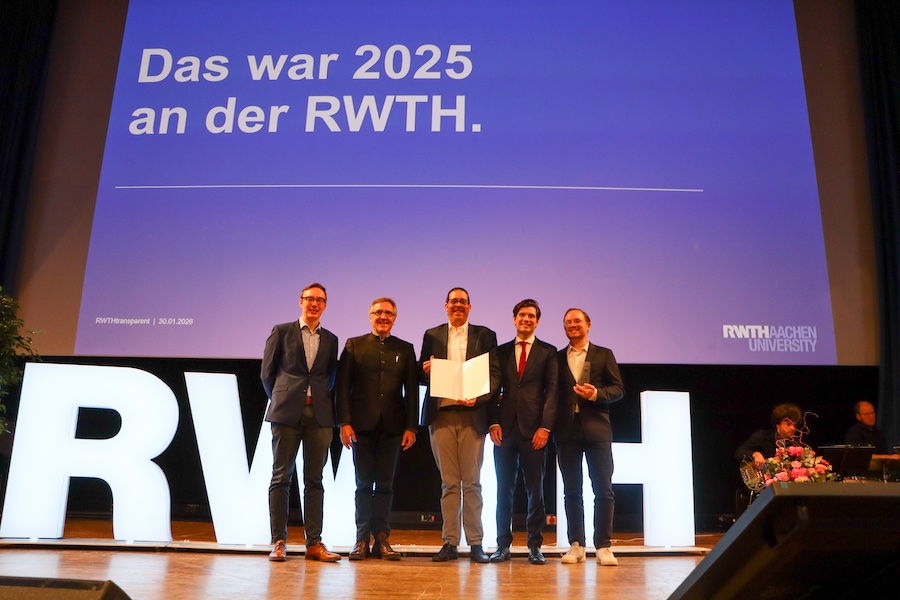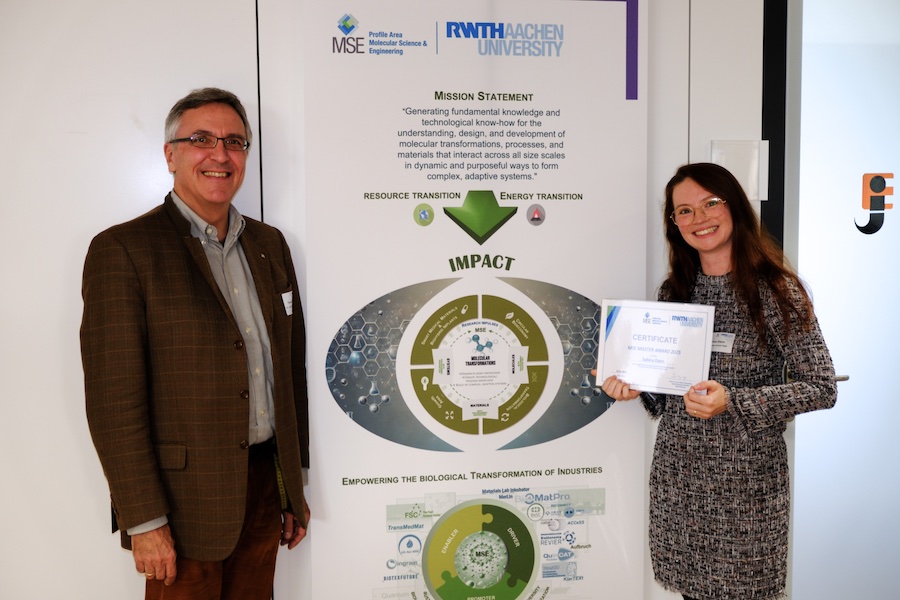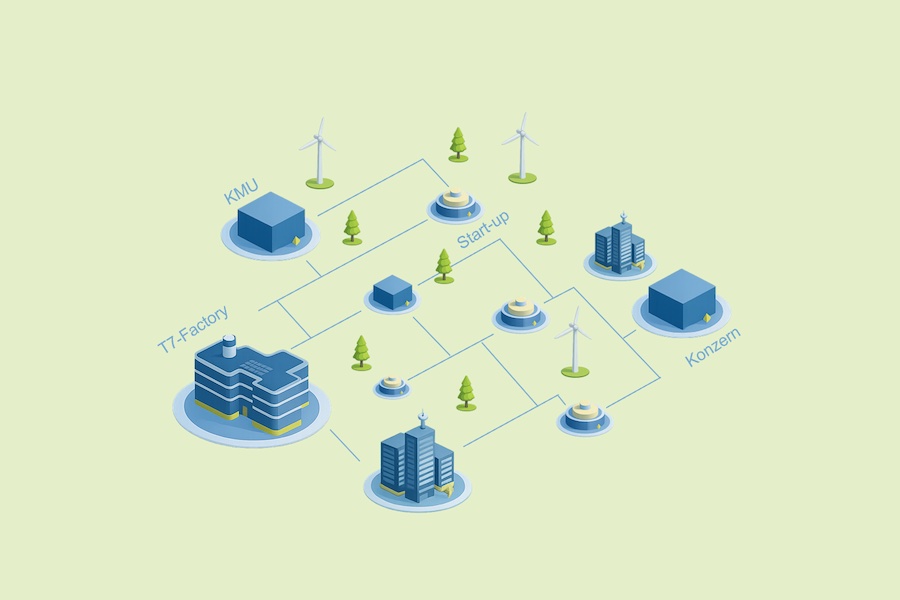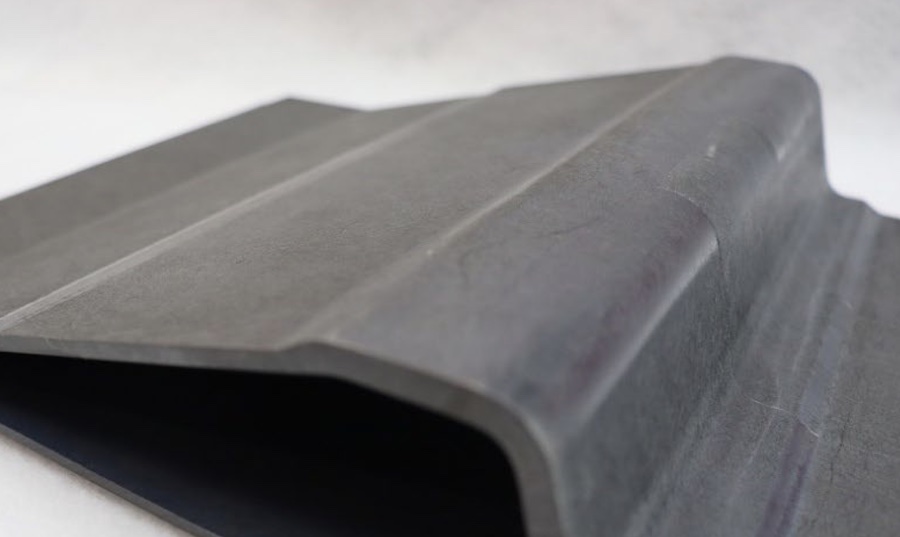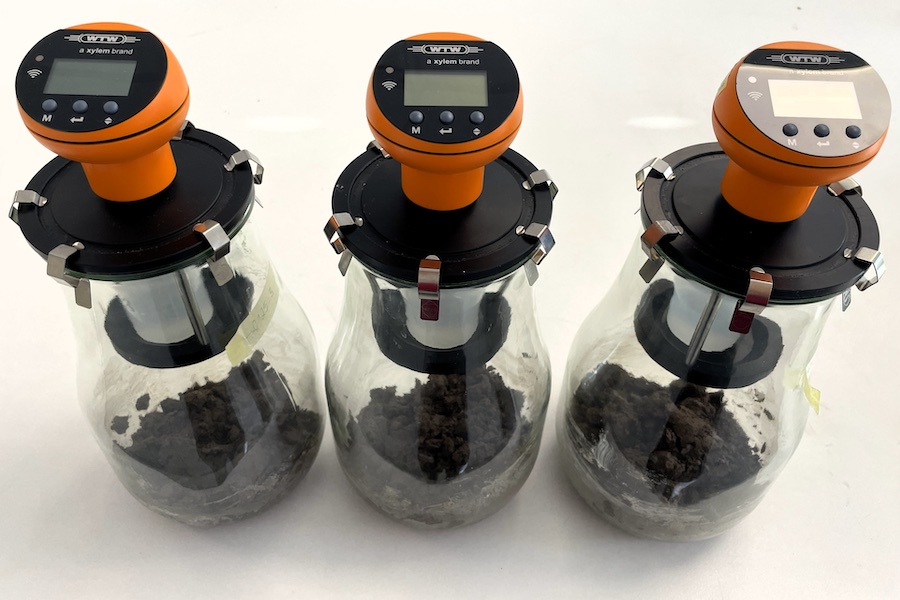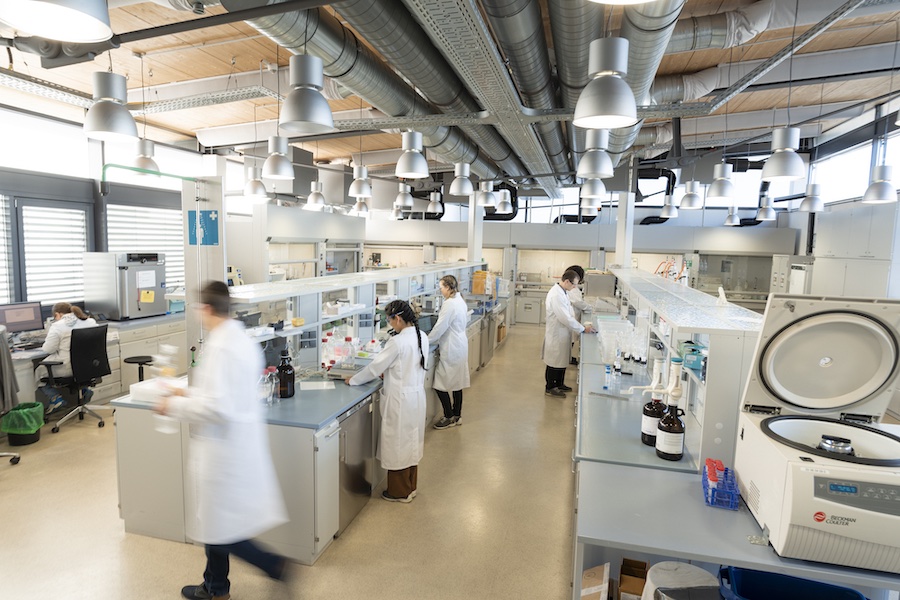#Research & Development
ITA postdoc Dr Leonie Beek is revolutionising oil filtration with a bionic textile
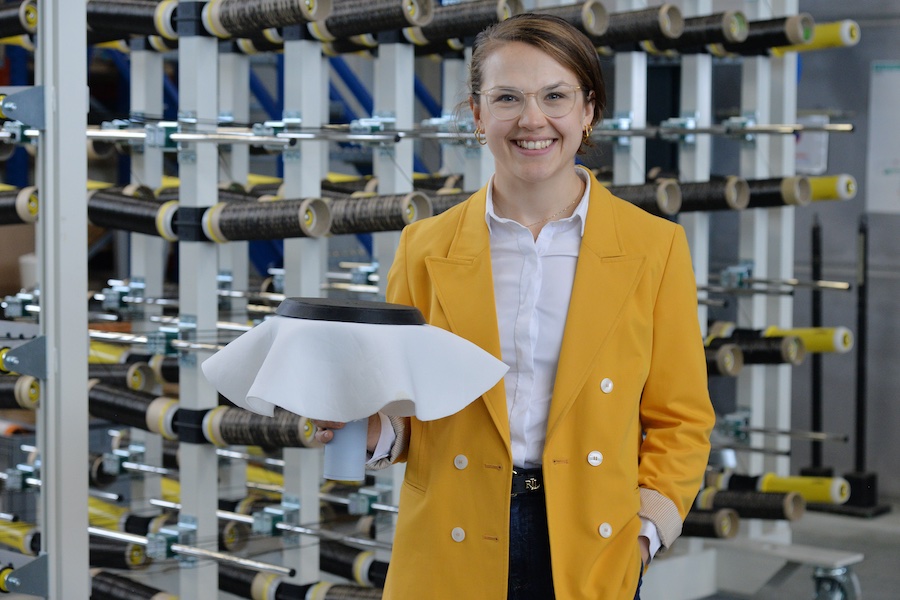
Paul Schlack Prize 2025 goes to Leonie Beek
Dr Leonie Beek's dissertation focused on the sustainable separation of oil and water. On various biological surfaces, oil is adsorbed from water surfaces and transported along the leaf. This effect differs from technical solutions in that oil-water separation is achieved without external energy and without toxic substances.
Possible use in harbour basins or in the event of flooding/pollution of inland waters
Dr Beek integrated the bionic textile into a floating device (Bionic Oil Adsorber – BOA). The BOA demonstrator, which has a technology readiness level of 4, can remove up to 4 litres of diesel per hour. It is intended for use in port areas. Another promising application is in the event of flooding and pollution of inland waters and urban sewage treatment plants.
Ecologically and economically sustainable technology
The technology is ecologically sustainable, as both the textile and the separated oil can be reused. It is also economically sustainable, as the textile is up to 13 times cheaper than sorption materials with a service life of 21 days.
Overall, Dr Leonie Beek succeeded in her dissertation in transferring the biological principle to a bionic textile and presenting a product for use in the completely new application of oil-water separation. This is the first time that superhydrophobic surfaces have been used outside of friction reduction.
With the Paul Schlack Prize, CIRFS promotes innovation in man-made fiber research at universities and research institutes. The award ceremony took place during the opening event of the Dornbirn GFC Global Fiber Congress in Austria.
Background
Since 1971, the Paul Schlack Prize has been awarded at the Dornbirn GFC Global Fiber Congress (formerly Dornbirn Man-made Fibers Congress) in Dornbirn (Austria) to promote chemical fibre research at universities and research institutes. Previous ITA winners of the Paul Schlack Prize include Dr Stefan Peterek, Dr Andreas De Palmenaer, Prof. Dr Gunnar Seide, Dr Wilhelm Steinmann, Dr Stephan Walter, Dr Gisa Wortberg, Dr Benjamin Weise, and Dr Markus Beckers.




